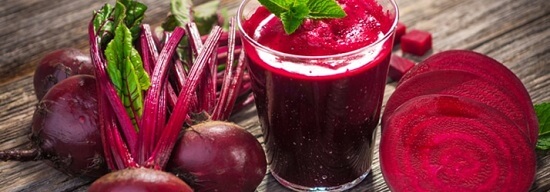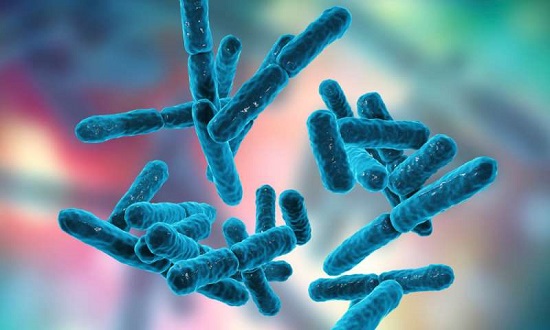Here are some health benefits of beet kvass for you to know and include in your daily health care routine. Keep Reading!
Beets or Beetroots are multifaceted root vegetables. They can be eaten raw in a salad, added to cooked vegetables, and they can be fermented as well. These fermented beets can be very beneficial for your health.
Nutritional Info In Beet Kvass:
- Vitamin C
- Vitamin B9
- Magnesia
- Folate
- Potassium
- Iron
- Fiber
When chopped beets are mixed with sea salt, sugar and starch convert to lactic-acid it preserves the kvass. The result is full of beneficial enzymes, friendly probiotic bacteria, and increased vitamin levels. Regular consumption of beet kvass will promote healthy gut flora, which aids gut health. It can lower blood pressure and improve stamina too.
The health Benefits of Beet Kvass:
1. Has Probiotics
When beets are fermented, all the healthy stuff like antioxidants, fiber, vitamins, and minerals remain intact in the vegetable. And produces the good bacteria (probiotics) and digestive enzymes that are evident in the process of fermentation. Beet Kvass has live micro-organisms, that help restore gut flora. It improves your digestion and thereby strengthens the immune system. Having enough healthy gut bacteria will keep away problems like digestive problems, skin issues, candida, and autoimmune diseases at bay.
According to this 2009 animal study report on the effect of lactobacillus fermented beetroot juice on the composition and activity of cecal microflora of rats, it proves that it is beneficial to microbial activity.
2. Lowers Blood Pressure
Beetroot has high nitrate content, our bodies convert it to nitric oxide. Nitric oxide is produced by nearly every type of cell in the body and it’s one of the most important molecules for blood vessel health. It’s a vasodilator, meaning it relaxes the inner muscles of the blood vessels which causes the blood vessels to widen. Thus, increasing blood flow and lowering the blood pressure (BP) of the body. Nitrates are a common therapy for those with congestive heart failure. The dietary nitrates provide sustained blood pressure lowering in hypertensive patients. Just a glass of beetroot juice helps aid people with hypertension.
Hypertension increases the risk of heart diseases, stroke, and even death. A good amount of nitric oxide in the body can help overcome the above risks. According to this study, one group of participants were given beetroot juice while others were given a placebo. The blood pressure of those in the test given beetroot juice decreased much more than the placebo in just minutes.
3. Improves Stamina
Beet juice because of its nitric oxide boosting properties, it helps boost stamina by up to 16%. Healthy levels of nitric oxide help improve the ability to exercise.
4. Has anti-carcinogenic properties
Beets have a high number of phytonutrients that contain powerful anti-cancer properties. When you consume these phytonutrients, they may help fight diseases such as pancreatitis, breast and prostate cancer.
6. Increases Bioavailability
During the fermentation process, the bioavailability increases in the beets. The fermentation process breaks down the harder to digest compounds and thus makes the full benefits of the compound more accessible to the body. Bioavailability is a term used in pharmacology which means the degree and the rate in which a substance is absorbed. In this case, when beets are fermented, they become easier to absorb and digest.
7. Other Health Benefits of Beet Kvass
Along with the above-discussed health benefits of Beet Kvass, it also has anti-inflammatory properties, the betalains are an active compound in beets and it may help in reducing the cellular damage.
Beet Kvass Recipe
After discussing so many health benefits of Beet Kvass, you might be eager to know the recipe to make it. It’s really easy to make Beet kvass at home. Follow this basic recipe:
You will need:
- 2 Large Beets (we prefer organic beets).
- 1 teaspoon of sea salt; do not use iodized salt.
- 3 cups of filtered water
How to make:
- Gently wash the beet and do not scrub them as the lactobacillus bacteria which causes the fermentation lives on top of the beet skin.
- Chop the beets into ½ or 1-inch chunks. Do not cut them too small, because the sugar in them will be released quickly and the fermentation will happen quickly too.
- Add the beet chunks to a mason jar.
- Add one teaspoon of natural sea salt to it or you can also use Himalayan Pink salt.
- Now, fill the jar with filtered water and cover the jar with cheesecloth and do not airtight it because the pressure might build and break the jar.
- Let it sit for 48 hours for the fermentation to happen.
- You might notice small bubbles on top of the jar and that’s what we want. The salt will inhibit bad bacteria and will help the lactobacillus bacteria grow. Lactobacillus uses sugar present in the beets to grow.
- After 48 hours or so, put it into the refrigerator and consume as desired.
Beet Kvass gets better after a week in the refrigerator. You can let it sit for about another week. The liquid will thicken and will seem less watery, it will also become a much darker purple-red color. You can not keep the beet kvass for more than two weeks. Create a new batch after the previous one expires.
Side-effects of Beet Kvass:
There are many health benefits of Beet Kvass but there are some side-effects too. Beets can cause kidney stones because they are rich in anti-oxidants. According to Harvard Medical School – Beets, chocolate, spinach, rhubarb, tea, and most nuts are rich in oxalate which is considered as stone-forming foods. If someone had kidney-stone in the past, they should reduce the consumption of beets. If someone has kidney-stone, they shouldn’t eat beets.
Because of beetroot’s bright and vivid color, it can sometimes make urine or stool turn pink or red. This is called beeturia. But don’t worry, this is perfectly normal. The extent of this condition depends on the amount and color of the beets you eat.
Beets contain oxalates, and if someone is suffering from gout, beets can worsen the condition. A gout is a painful form of inflammatory arthritis. Consuming beet kvass during this condition can worsen it and should be avoided.
How much beet kvass you should consume on a daily basis?
You can safely consume 4 ounces of beet kvass twice a day. But remember moderation is the key, anything in excess is harmful. Common side effects of excessive consumption of too many probiotics include gastric issues, bloating, abdominal pain and diarrhea. If you notice any of the above symptoms after including beet kvass in your diet, then lower the consumption. Your body might need more time to get accustomed to the sudden dose of beneficial bacteria. After the balance is maintained, you can increase the amount of beet kvass.
Please note: Although there are many health benefits of Beet Kvass it will not help you if you are still eating junk, not sleeping enough, and in general not taking care of your body. It isn’t any magical drink, it can only help support other good changes and can act as a catalyst in improving your health!
You can even follow along this Beet Kvass Recipe from Jeem Elliott:






